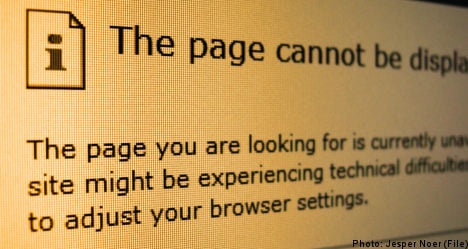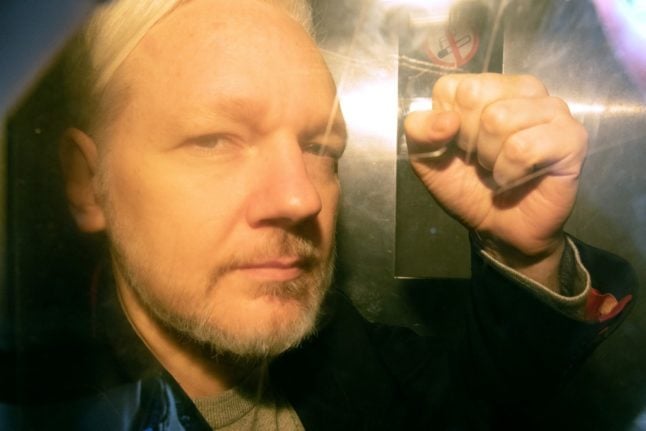The incident has now been reported to the police.
Shortly after news that the website of the Swedish Prosecution Authority (Åklagarmyndigheten) had been disabled by an apparent hacker attack on Tuesday night, hackers also disrupted the Internet site and email service of Swedish lawyer Claes Borgström, who is representing the women who made the allegations against Assange.
“Our email and website were hacked last night or this morning. We think it’s the same people [who attacked] the prosecutors [website],” lawyer Claes Borgström, who is representing the women told AFP.
The website of the Swedish Prosecution Authority (Åklagarmyndigheten) site was shut down Tuesday, the day that Assange was detained by British police in response to a Swedish warrant but it had been restored Wednesday.
The WikiLeaks site has also come under sustained cyber attack since it began releasing some 250,000 confidential US diplomatic memos on November 28th.
Officials from SITIC, Sweden’s computer emergency response team, confirmed on Wednesday that the attack against the Swedish Prosecution Authority website had all the hallmarks of a hacker attack.
“This was a distributed denial of service (DDoS) attack. Technically, we could see that the request load to the prosecutor’s website rose sharply and stayed at a constant and high rate for several hours,” SITIC head Stefan B. Grinneby told The Local.
While Grinneby said that SITIC lacked the same technical data to confirm the attack on Borgström’s website, he added that, based on what he knew, that attack also “seemed to be” a DDoS attack.
“The purpose of such attacks is apparent by the name. It means you won’t be able to communicate with the site during the attack. As to what that lack of service might mean, it’s hard to speculate on,” he said.
According to IT security firm Truesec, which investigated the problems with both websites, the attacks represent a new type of DDoS attack.
“The sites crashed because Swedes on sites like Flashback and other similar (internet forums) offered to have their computers controlled remotely in order to direct traffic to the homepages in question,” Truesec’s Marcus Murray told the TT news agency.
He claimed that the method used for controlling computers remotely was an entirely new phenomenon.
“It’s normal for individual hackers to send traffic. Now several WikiLeaks sympathisers could use their computer without doing anything. This is like a popular movement and contributed to the sites being knocked out,” said Wilander.
Speaking with the TT news agency on Wednesday morning, Borgström said news of the attack “took him by surprise.”
“My first thoughts are with my clients who are two women who have been drawn in to some sort of global political event which they have nothing to do with whatsoever. And now their attorney has been subject to an attack. It’s totally insane and I’m deeply troubled by it,” he said.
Borgström also emphasised his concern that the Swedish investigation into his clients’ rape investigations has been connected to the US’ rumoured interest in Assange.
“I’m disappointed at how easily false rumours can take on such proportions and consequences. Julian Assange is primarily responsible for this development. He could have denied the rumours but he hasn’t; rather, he’d done the opposite,” said Borgström.
Later on Wednesday, the Swedish Prosecution Authority announced it was reporting the hacker attack to the police.
“We’ve now received confirmation that the attack was a coordinated denial of service attack against us. It’s the first time that we’ve suffered one and it’s also the first time we’ve filed a complaint with the police,” Prosecution Authority spokesperson Karin Rosander told TT.
She said the agency takes the attack very seriously because so many people are looking for information about the WikiLeaks’ founder’s case on the prosecutor’s website.
“Many people want facts in the Assange case. This applies to both our Swedish and English websites,” she said.
Editor’s note: the original version of this article quoted John Willander as a representative of Truesec when in fact the quotes come from Truesec’s Marcus Murray. The error has now been corrected.



 Please whitelist us to continue reading.
Please whitelist us to continue reading.
Member comments